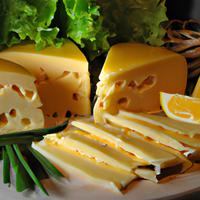
1 serving (125 grams) contains 321 calories, 6.0 grams of protein, 23.0 grams of fat, and 25.0 grams of carbohydrates.

Log this food in SnapCalorie

Nutrition Information
Calories |
610.3 | ||
|---|---|---|---|
% Daily Value* |
|||
| Total Fat | 43.7 g | 56% | |
| Saturated Fat | 26.6 g | 133% | |
| Polyunsaturated Fat | 0 g | ||
| Cholesterol | 152.1 mg | 50% | |
| Sodium | 475.3 mg | 20% | |
| Total Carbohydrates | 47.5 g | 17% | |
| Dietary Fiber | 1.0 g | 3% | |
| Sugars | 38.0 g | ||
| protein | 11.4 g | 22% | |
| Vitamin D | 38.0 mcg | 190% | |
| Calcium | 190.1 mg | 14% | |
| Iron | 1.0 mg | 5% | |
| Potassium | 228.1 mg | 4% | |
* Percent Daily Values are based on a 2,000 calorie diet. Your daily values may be higher or lower depending on your calorie needs.
Food Attributes
Source of Calories
About Cheese cale
Cheesecake is a rich and creamy dessert traditionally made from cream cheese, sugar, eggs, and a graham cracker or cookie crust. Variations may include sour cream, mascarpone, or ricotta for different textures and flavors, as well as toppings like fruits, chocolate, or caramel. Originating from ancient Greece and popularized in modern European and American cuisine, cheesecake is now enjoyed globally with regional twists. While loved for its indulgent taste and texture, it is calorie-dense, high in sugar, and often contains saturated fats, which should be consumed in moderation. However, some versions incorporate healthier alternatives like reduced-fat cream cheese, yogurt, or natural sweeteners. Cheesecake can be a satisfying treat when balanced within a nutritious diet, offering some protein and calcium from the dairy content, though its high sugar and fat levels are aspects to consider carefully.



